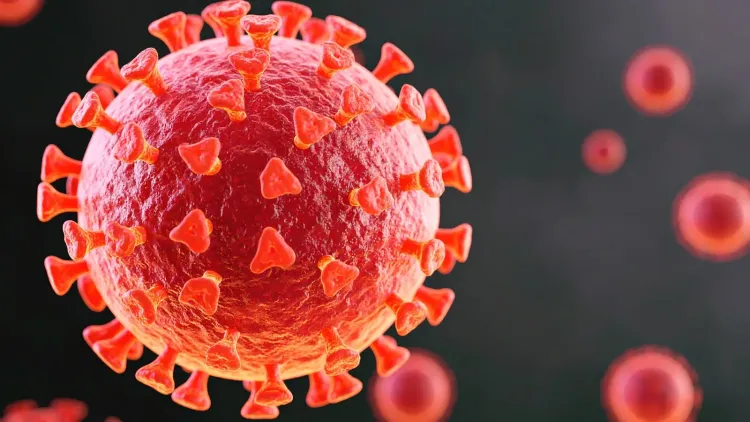Can a Protein from the Covid-19 Virus Mislead the Immune System?

Synopsis
Key Takeaways
- The nucleocapsid protein from SARS-CoV-2 can mislead the immune system.
- This misidentification can lead to severe complications and tissue damage.
- Enoxaparin may be effective in blocking the harmful effects of NP.
- The study opens new avenues for managing immune responses in Covid-19.
- New variants like NB.1.8.1 are emerging, necessitating ongoing vigilance.
New Delhi, June 11 (NationPress) In light of a new surge in Covid-19 cases, researchers from Israel have made a significant discovery: a protein associated with the SARS-CoV-2 virus may lead the immune system to mistakenly target healthy cells.
This groundbreaking study, featured in the journal Cell Reports, elucidates the mechanisms behind severe Covid-19 complications and proposes innovative strategies to mitigate immune-related damage caused by the virus, according to a report by Xinhua news agency.
Scientists at the Hebrew University of Jerusalem identified that the virus's nucleocapsid protein (NP), typically responsible for encapsulating the virus's genetic material within infected cells, can migrate to neighboring uninfected epithelial cells.
When NP attaches to the surface of these healthy cells, it is misperceived by the immune system as a danger. Consequently, the immune response activates anti-NP antibodies, marking these non-infected cells for elimination.
This cascade initiates the classical complement pathway, part of the immune response that triggers inflammation and tissue damage, leading to severe Covid symptoms and potentially contributing to long Covid.
Utilizing laboratory-grown cells, advanced imaging techniques, and samples from Covid-19 patients, researchers discovered that NP binds to specific molecules on cell surfaces, resulting in clustering that further misguides the immune system.
The research also revealed that the drug enoxaparin, a widely used blood thinner and heparin analog, can inhibit NP from adhering to healthy cells.
In both laboratory settings and patient samples, enoxaparin effectively prevented immune attacks by occupying the binding sites utilized by NP.
The findings could offer new avenues for reducing immune-related complications in Covid-19 and possibly other viral illnesses.
Simultaneously, a new Covid variant termed NB.1.8.1 has been spreading rapidly across various regions worldwide, raising fresh concerns.
This variant, which falls under the Omicron lineage, was first identified in January 2025 and has since been reported in countries including India, the US, the UK, Australia, China, Maldives, and Egypt.
The World Health Organization (WHO) has officially classified it as a “Variant Under Monitoring,” indicating it is spreading rapidly enough to require observation, although it is not yet deemed a major threat.









